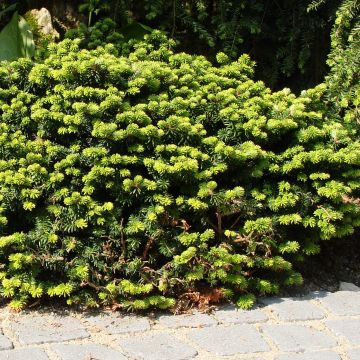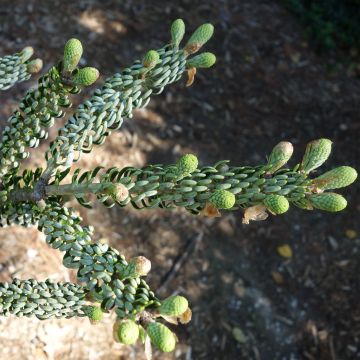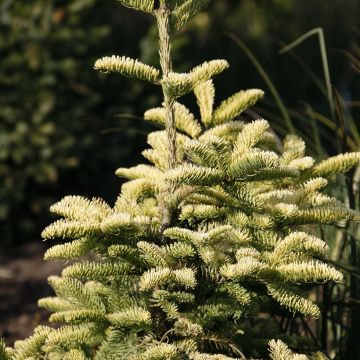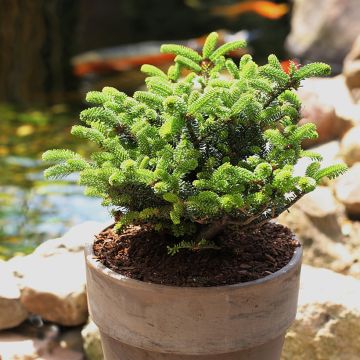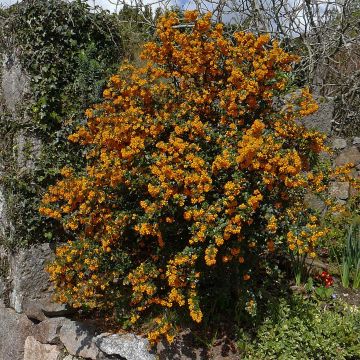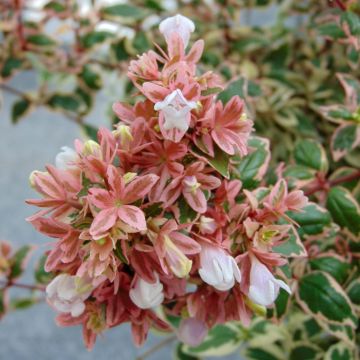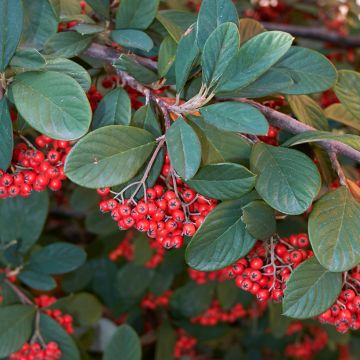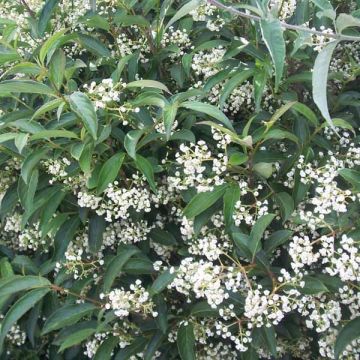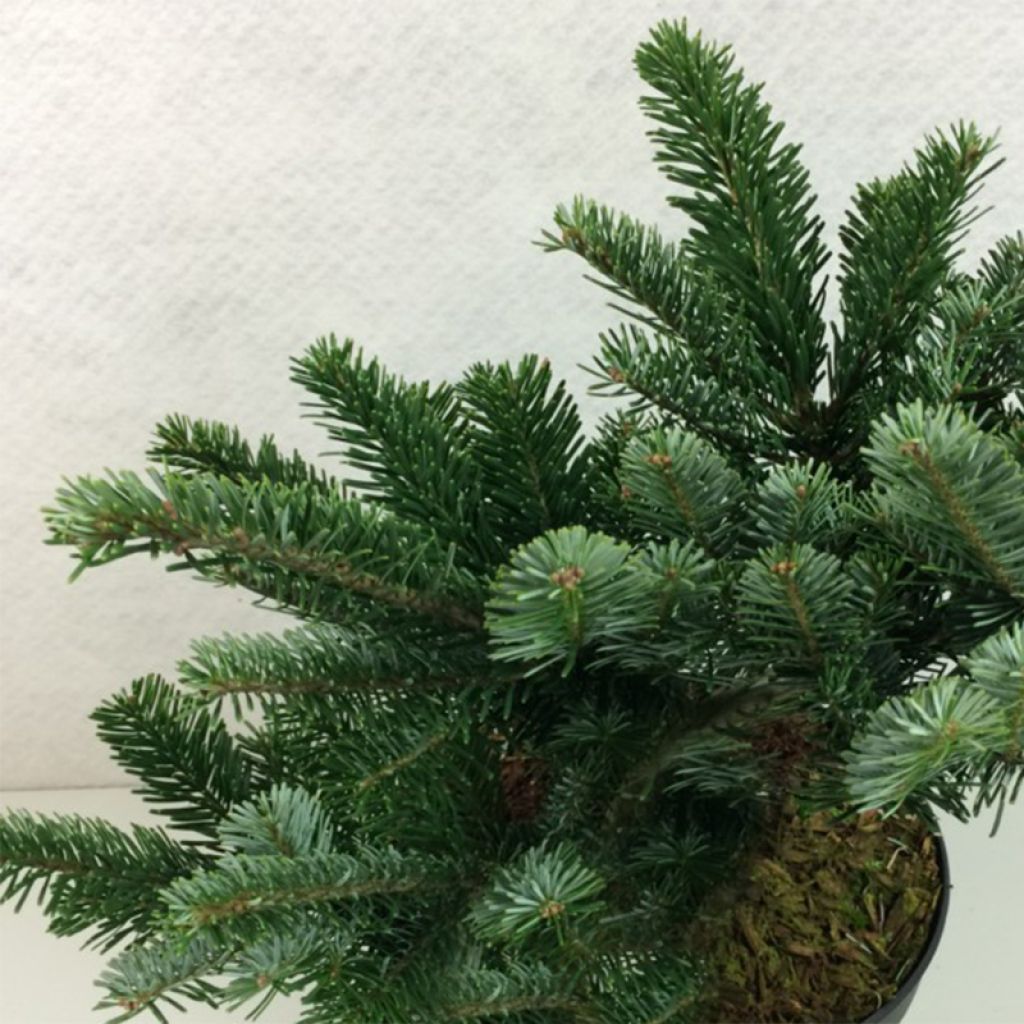

Abies amabilis Spreading Star - Fir
Abies amabilis Spreading Star - Fir
Abies amabilis Spreading Star
Pacific Silver Fir
Special offer!
Receive a €20 voucher for any order over €90 (excluding delivery costs, credit notes, and plastic-free options)!
1- Add your favorite plants to your cart.
2- Once you have reached €90, confirm your order (you can even choose the delivery date!).
3- As soon as your order is shipped, you will receive an email containing your voucher code, valid for 3 months (90 days).
Your voucher is unique and can only be used once, for any order with a minimum value of €20, excluding delivery costs.
Can be combined with other current offers, non-divisible and non-refundable.
Why not try an alternative variety in stock?
View all →This plant carries a 24 months recovery warranty
More information
We guarantee the quality of our plants for a full growing cycle, and will replace at our expense any plant that fails to recover under normal climatic and planting conditions.
Would this plant suit my garden?
Set up your Plantfit profile →
Description
Abies amabilis Spreading Star, also known as the pacific silver fir, is a conifer with a prostrate habit that is ideal used as a ground cover. It slowly spreads to form a mat of 1 meter (3.3ft) in diameter, with a deep green-blue colour and silvery reflections. Hardy, slow-growing, and preferring slightly acidic and moist soils, it is perfect for a large rockery or a small garden.
The Abies amabilis, sometimes called the pacific silver fir or cascade fir, is a conifer from the pinaceae family native to the west coast of the United States. In nature, this species can reach an impressive height of 80 meters (262 ft) under an oceanic climate with significant rainfall. 'Spreading Star' is a dwarf form with a spreading and prostrate habit, reaching a height of no more than 30cm (11.8in) and a width of 1 meter (3.3ft) after several years of cultivation. It is also less demanding in terms of water, but still prefers moist soil. This conifer has shiny needles which are dark green on the upper surface with bluish-white stomata on the lower surface, giving its foliage a silvery and bluish appearance.
The Abies amabilis Spreading Star is ideal for covering the ground in a large rockery, on a slope, or in small gardens, thanks to its slow growth and small size. With its dense, mat-like silhouette that prevents the germination of weeds, it works wonders in rockeries, especially when planted in groups of 3. The architectural qualities of dwarf conifers naturally fit in the design of a contemporary garden, which values the aesthetics of shapes, silhouettes, and textures over flowering. These plants with strong personalities provide lasting structure to a bed, mark pathways and border terraces, easily replacing the strong presence of clipped boxwood. They serve as a backdrop for small roses, peonies, or windswept grasses with complementary forms. They can also be combined with ground cover plants such as aubrietas, ceraistes, and flowering shrubs. It's all about playing with volumes and colours.
Report an error about the product description
Abies amabilis Spreading Star - Fir in pictures
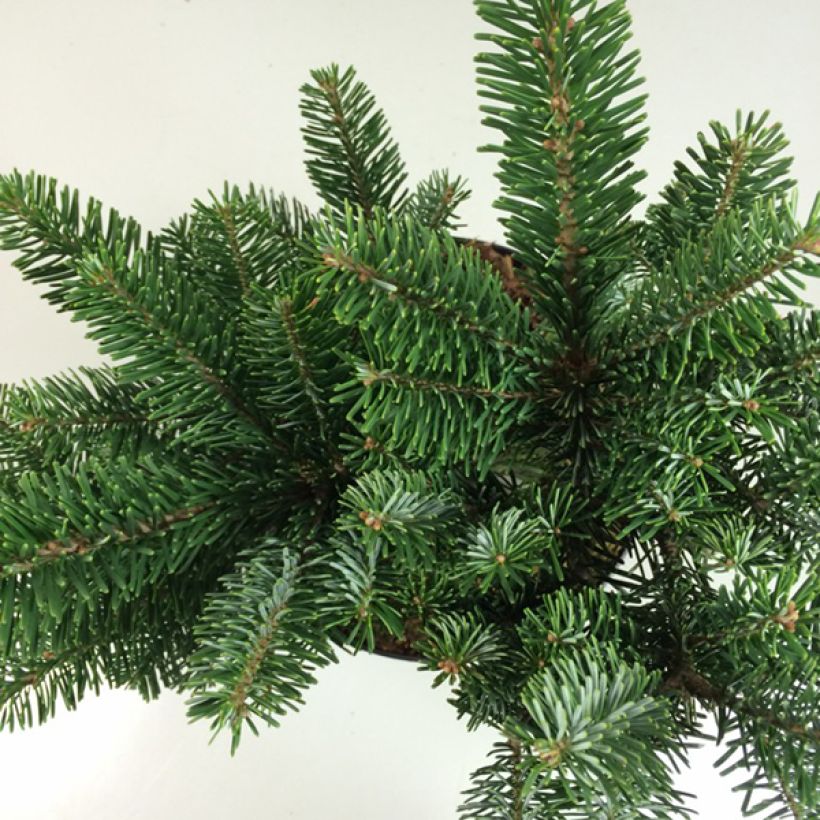

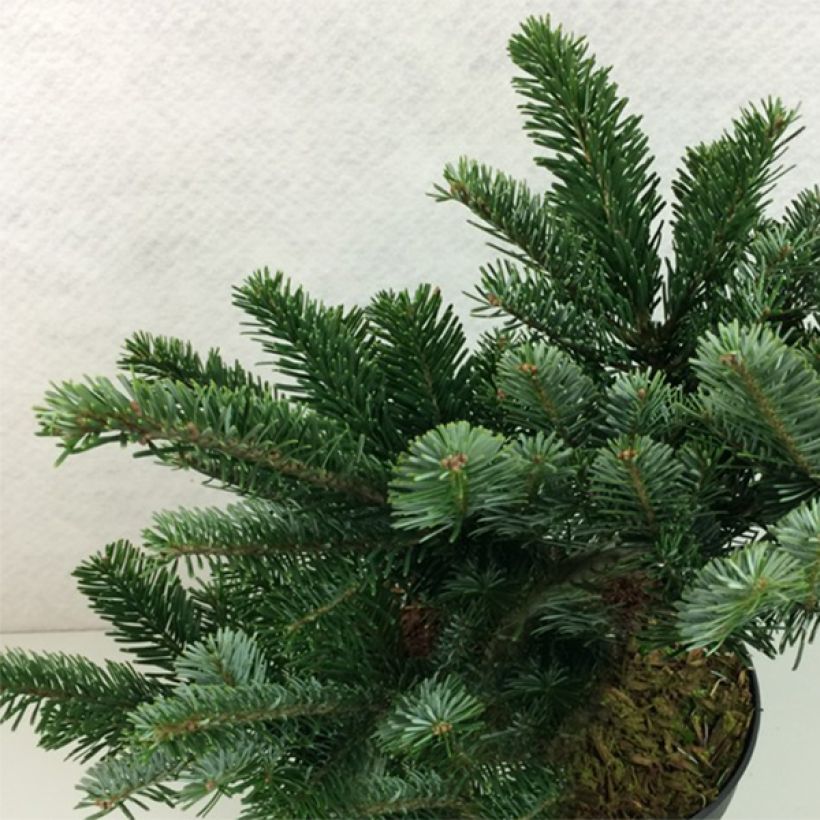

Plant habit
Foliage
Botanical data
Abies
amabilis
Spreading Star
Pinaceae
Pacific Silver Fir
Cultivar or hybrid
Other Abies
View all →Planting and care
Abies amabilis Speading Star can be planted in spring or autumn, in soil that retains moisture, is rich in humus and slightly acidic to neutral. This small conifer thrives in both sun and partial shade. Regularly water the young plants during the first months after planting. The graceful dwarf fir does not tolerate any drought, it is a species of cool, oceanic or mountain climates. This bush does not require pruning, but any unsightly or obstructive branches can be removed to enhance its shape.
Planting period
Intended location
Care
This item has not been reviewed yet - be the first to leave a review about it.
Similar products
Haven't found what you were looking for?
Hardiness is the lowest winter temperature a plant can endure without suffering serious damage or even dying. However, hardiness is affected by location (a sheltered area, such as a patio), protection (winter cover) and soil type (hardiness is improved by well-drained soil).

Photo Sharing Terms & Conditions
In order to encourage gardeners to interact and share their experiences, Promesse de fleurs offers various media enabling content to be uploaded onto its Site - in particular via the ‘Photo sharing’ module.
The User agrees to refrain from:
- Posting any content that is illegal, prejudicial, insulting, racist, inciteful to hatred, revisionist, contrary to public decency, that infringes on privacy or on the privacy rights of third parties, in particular the publicity rights of persons and goods, intellectual property rights, or the right to privacy.
- Submitting content on behalf of a third party;
- Impersonate the identity of a third party and/or publish any personal information about a third party;
In general, the User undertakes to refrain from any unethical behaviour.
All Content (in particular text, comments, files, images, photos, videos, creative works, etc.), which may be subject to property or intellectual property rights, image or other private rights, shall remain the property of the User, subject to the limited rights granted by the terms of the licence granted by Promesse de fleurs as stated below. Users are at liberty to publish or not to publish such Content on the Site, notably via the ‘Photo Sharing’ facility, and accept that this Content shall be made public and freely accessible, notably on the Internet.
Users further acknowledge, undertake to have ,and guarantee that they hold all necessary rights and permissions to publish such material on the Site, in particular with regard to the legislation in force pertaining to any privacy, property, intellectual property, image, or contractual rights, or rights of any other nature. By publishing such Content on the Site, Users acknowledge accepting full liability as publishers of the Content within the meaning of the law, and grant Promesse de fleurs, free of charge, an inclusive, worldwide licence for the said Content for the entire duration of its publication, including all reproduction, representation, up/downloading, displaying, performing, transmission, and storage rights.
Users also grant permission for their name to be linked to the Content and accept that this link may not always be made available.
By engaging in posting material, Users consent to their Content becoming automatically accessible on the Internet, in particular on other sites and/or blogs and/or web pages of the Promesse de fleurs site, including in particular social pages and the Promesse de fleurs catalogue.
Users may secure the removal of entrusted content free of charge by issuing a simple request via our contact form.
The flowering period indicated on our website applies to countries and regions located in USDA zone 8 (France, the United Kingdom, Ireland, the Netherlands, etc.)
It will vary according to where you live:
- In zones 9 to 10 (Italy, Spain, Greece, etc.), flowering will occur about 2 to 4 weeks earlier.
- In zones 6 to 7 (Germany, Poland, Slovenia, and lower mountainous regions), flowering will be delayed by 2 to 3 weeks.
- In zone 5 (Central Europe, Scandinavia), blooming will be delayed by 3 to 5 weeks.
In temperate climates, pruning of spring-flowering shrubs (forsythia, spireas, etc.) should be done just after flowering.
Pruning of summer-flowering shrubs (Indian Lilac, Perovskia, etc.) can be done in winter or spring.
In cold regions as well as with frost-sensitive plants, avoid pruning too early when severe frosts may still occur.
The planting period indicated on our website applies to countries and regions located in USDA zone 8 (France, United Kingdom, Ireland, Netherlands).
It will vary according to where you live:
- In Mediterranean zones (Marseille, Madrid, Milan, etc.), autumn and winter are the best planting periods.
- In continental zones (Strasbourg, Munich, Vienna, etc.), delay planting by 2 to 3 weeks in spring and bring it forward by 2 to 4 weeks in autumn.
- In mountainous regions (the Alps, Pyrenees, Carpathians, etc.), it is best to plant in late spring (May-June) or late summer (August-September).
The harvesting period indicated on our website applies to countries and regions in USDA zone 8 (France, England, Ireland, the Netherlands).
In colder areas (Scandinavia, Poland, Austria...) fruit and vegetable harvests are likely to be delayed by 3-4 weeks.
In warmer areas (Italy, Spain, Greece, etc.), harvesting will probably take place earlier, depending on weather conditions.
The sowing periods indicated on our website apply to countries and regions within USDA Zone 8 (France, UK, Ireland, Netherlands).
In colder areas (Scandinavia, Poland, Austria...), delay any outdoor sowing by 3-4 weeks, or sow under glass.
In warmer climes (Italy, Spain, Greece, etc.), bring outdoor sowing forward by a few weeks.































